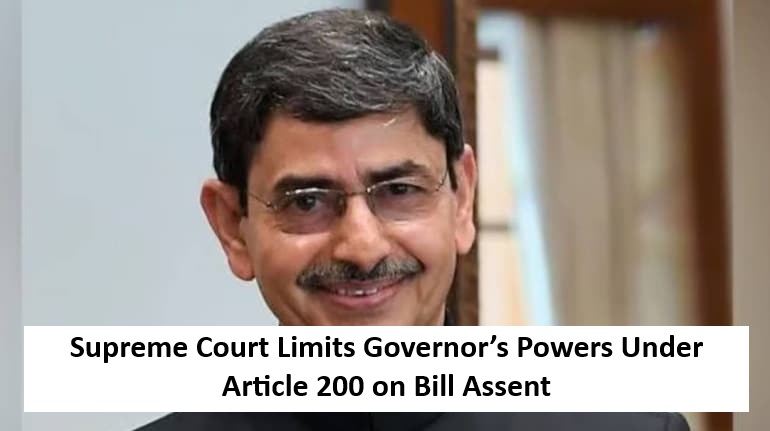
On April 8, the Supreme Court ruled on a case involving the scope of a Governor’s authority under Article 200 of the Constitution. The case challenged the Tamil Nadu Governor’s decision to withhold assent to 10 re-enacted bills and send them to the President. The Court ruled that this decision was legally incorrect and emphasized that the Governor does not have the authority to exercise an "absolute veto" or a "pocket veto."
Governor Cannot Re-Reserve Re-enacted Bills
The Court clarified that once a bill is re-enacted by the State Legislature after being returned by the Governor, the Governor must grant assent. Article 200 clearly states that the Governor "shall not withhold assent" in such cases. The Governor, therefore, cannot reserve the bill for the President again once it has been reconsidered and passed.
Fixed Timelines for Assent Decisions
To reduce ambiguity and delay, the Supreme Court established specific timeframes for actions by the Governor:
One month to withhold assent or reserve the bill with the Council of Ministers' advice.
Three months to return the bill if acting without the Council of Ministers' advice.
One month to grant assent if the bill is returned after being reconsidered by the State Assembly.
Article 200 – Overview of Governor’s Options
Under Article 200, when a bill is passed by the State Legislative Assembly, the Governor can:
Grant assent,
Withhold assent, or
Reserve the bill for the President’s consideration.
The Governor is expected to act within the bounds of constitutional provisions, particularly when the bill is not a money bill or when no legal obligation exists to reserve it for the President.
Meaning of “As Soon As Possible” in Constitution
Although Article 200 does not set a strict deadline for the Governor to act, the Supreme Court interpreted the phrase “as soon as possible” to mean that the Governor must act promptly. This interpretation prevents undue delays and promotes timely decision-making.
Recommendations from Expert Committees
The Commission on Centre-State Relations previously suggested that the President should decide on assent within a six-month period, similar to the time allowed for the State Legislature when a bill is returned. It also proposed that if the President is unsure, a reference to the Supreme Court under Article 143 should be made to avoid allegations of bias.

 Share
Share



